Sigma Xi Distinguished Lecturers, 2002-2003
Abstracts
Download a PDF of the lectureships information that appeared in the January-February 2002 issue of American Scientist.
Each lecturer has designated his or her topic(s) for three different types of audiences. Where more than one level is shown, the lecture can be adjusted to the needs of the audience:
- P (Public)
Aimed at presenting scientific issues of general concern to a public audience. - G (General)
Intended for a normal Sigma Xi audience of both scientists and other scholars representing a broad range of disciplines. - S (Specialized)
Aimed at scientists and students in fields that are closely related to that of the lecturer.
Thomas R. Albrecht
IBM Zurich Research Lab
Saeumerstrasse 4
CH-8804 Rueschlikon
Switzerland
Phone: +41 1 724 8468 E-mail:albrecht@almaden.ibm.com
Effective until April 2003
Tom Albrecht received a B.A. in physics from Carleton College in 1985 and a Ph.D. in applied physics from Stanford University in 1989. His thesis research at Stanford focused on Atomic Force Microscopy (AFM), and included the first demonstration of atomic resolution imaging on electrically nonconducting samples, and the development of microfabricated force-sensing cantilever probes, which are used routinely in AFM today. After completion of graduate school, he worked briefly for Park Scientific Instruments (PSI), helping launch PSI's first AFM product.
Since late 1989, Tom has been a research staff member and manager at the IBM Almaden Research Center in San Jose, CA. At IBM, his work has centered primarily on technologies for tape and disk drives. In tape technology, he contributed to a novel track-following servo technology, referred to as "Timing-Based Servo," which allows higher track density and higher reliability. This technology, along with various mechanical designs of his, has been implemented in IBM's 3570 Magstar MP family of tape products, and has become the standard servo technology for the newly launched Linear Tape Open (LTO) tape platform adopted by Hewlett-Packard, IBM, Seagate, and other companies.
For disk drives, Tom spearheaded the development of ramp load/unload technology for IBM's Travelstar mobile disk drives. Load/unload technology provides increased data density, reduced power consumption, better shock robustness, and improved reliability over conventional contact start-stop technology commonly used in disk drives. Another recent project has been design and applications work for IBM's "Microdrive" 1-inch disk drive. The Microdrive is the world's smallest, lightest disk drive intended for new markets such as digital cameras, MP3 music players, and handheld computers.
Tom has 42 issued U.S. patents and 33 publications. He served on the LTO tape standards committee, and represented IBM in the CompactFlash Association to modify the CompactFlash standard to accommodate IBM's microdrive. He is a member of the IBM Academy of Technology.
Dr. Aviva Brecher
National Technical Expert
Environment, Safety and Health
Office of Environmental Preservation
and Systems Modernization, DTS-30
DOT/RSPA Volpe National Transportation Systems Center
55 Broadway
Cambridge, MA 02142-1093
Tel: 617-494-3470
Fax: 617-494-3633
E-mail: brecher@volpe.dot.gov
Web: www.volpe.dot.gov/enviro/index.html
Aviva Brecher is a senior scientist (National Technical Expert) on transportation safety, health and environmental issues at DOT's John A. Volpe National Transportation Systems Center in Cambridge, MA. Until recently she was a senior strategic planner and policy analyst supporting transportation R&D planning for DOT administrations and the NSTC Transportation subcommittees.
At Volpe Center Dr. Brecher worked on a wide range of projects requiring technical expertise in the physical sciences and risk assessment, including: transportation applications of space-based remote sensing; commercial space launch and orbital safety assessments for licensing vehicles and spaceports; environmental, health and safety effects of electromagnetic fields (EMF) and radiation (EMR) for transportation systems and facilities; assessment of non-ionizing and ionizing radiation exposure risk for Occupational Safety and Health policy; outreach on transportation health effects and risk tradeoffs; magnetic levitation technologies safety analysis and regulations for maglev and high speed rail; measurement and comparative analysis of EMF emissions and exposures for existing and emerging transportation technologies; electromagnetic interference (EMI) prevention and mitigation for GPS-based navigation and ITS collision radars; assessment of the future global air traffic control; environment; threat/operations analysis and system optimization for drug interdiction; superconducting magnet safety for maglev and for energy storage; strategic transportation research planning and technology-based transportation forecasts; and innovation and technology transfer issues; advanced materials R&D for transportation applications and for physical infrastructure renewal; technologies to measure and control the environmental impacts of transportation.
Prior to joining DOT in 1987, she worked in academia, business and government on a broad range of interdisciplinary topics including: postdoctoral research in Earth and Planetary Sciences at MIT on the physical and magnetic properties of Apollo lunar samples and problems in planetary geophysics (1972-80); teaching physics courses at MIT and Wellesley College (1977-80); technical consulting on risk assessment and mitigation in space exploration, and on environmental modeling of nuclear waste disposal at Arthur D Little, Inc.(1980-85); Director of Academic-Corporate Relations at Boston University (1985-6), and American Physical Society (APS) Congressional Science Fellow for Sen. Paul Tsongas in 1983-84. She received her BS and MS in Physics from MIT in 1968, and a Ph.D.in Applied Physics from the University of California at San Diego in 1972.
Dr. Brecher is listed in Who's Who in American Science and Engineering, in American Women of Science, and has published over 100 professional papers and over 200 conference presentations and technical reports. She is a former Congressional Science Fellow of the American Physical Society (APS)and a Fellow of the APS. She served on several professional societies' committees, including: AAAS/COSEPP, APS/Panel on Public Affairs (POPA), Chair of the APS Forum on Physics and Society, NAS/TRB and NSTC Committees on emerging transportation technologies, the Interagency EMF Committee (EMF-IAC) and working groups; and the IEEE International Committee of Electromagnetic Standards (ICES) and Committee on Man and Radiation (COMAR).
James S. Brooks
Dept. of Physics FSU/NHMFL
1800 East Paul Dirac Drive
Florida State University
Tallahassee Florida 32310
1-850-644-2836
Lab phone: 850-644-0446
Fax: 850-644-5038
E-mail: brooks@magnet.fsu.edu
http://theory.magnet.fsu.edu/~btt
- Diamagnetism - The less well-known magnetic force and the levitating frog (P,G)
- The summer student research experience - They appear at your door in early Summer and remind you about your generous offer to mentor last Fall (G, S)
- Extreme physics in high magnetic fields – Tricks with superconductors, explosives, and atoms with lots of f-electrons to get really high "B" (P, G, S)
Prof. Brooks has worked in many areas of experimental low temperature and high magnetic field physics. His early work at and involved the properties of superfluid helium, first in bulk liquid, and in restricted geometries and thin films. Upon joining the faculty at Boston University, he took advantage of the facilities at the Francis Bitter National High Magnetic Field Laboratory to develop very low temperature experimental capabilities in high magnetic fields. This opened new opportunities for the investigation for novel condensed matter systems – quantum fluids, organic conductors and superconductors, doped semiconductors, the quantum and fractional quantum Hall effects, and heavy Fermion systems – at temperatures below 0.1 K and in magnetic fields above 30 T. Brooks joined the faculty at Florida State University when the National High Magnetic Field Laboratory was established, and has since continued his high magnetic field research, which is presently funded by the National Science Foundation. International collaborations with Asian, Australian, and European research teams are a major component of his program. In his studies of low dimensional magnetic and superconducting materials, he has gone to the extremes of high magnetic fields in explosive magnetic flux compression experiments (800 tesla), and presently holds the record for doing an experiment in the largest steady state magnetic field at 47.8 tesla. He has also carried out magnetic levitation experiments, including the "floating frog" demonstration. Brooks has a keen interest and dedication to K-12 and other outreach and research experience programs, where every summer his group expands to include teachers and students at all levels in his laboratory activities. Brooks is presently teaching an honors level introductory astronomy class in the Physics Department at Florida State.
Gail Charnley
Society for Risk Analysis/Sigma Xi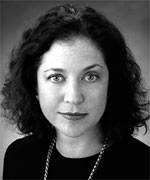 Distinguished Lecturer
Distinguished Lecturer
HealthRisk Strategies
826 A Street SE
Washington, DC 20003
Phone: 202-543-2408
Fax: 202-543-3019
healthrisk@aol.com
Dr. Gail Charnley is an internationally recognized expert in environmental health risk assessment and risk management science and policy. She has over 20 years of experience in environmental toxicology, human health risk assessment, and risk management, writing and speaking extensively on issues related to the role of science and risk analysis in environmental health policy and decision-making. Dr. Charnley focuses on the strategic risk management of complex scientific issues related to, for example, the implementation of numerous regulatory programs and standards, including the Clean Air Act, Food Quality and Protection Act, and the Environmental Protection Agency's proposed cancer risk assessment guidelines and Integrated Risk Information System. She is an adjunct faculty member in the Harvard School of Public Health's Center for Risk Analysis and has chaired or served on numerous peer review panels convened by the Environmental Protection Agency and the Food and Drug Administration. During its tenure, she was executive director of the Presidential/Congressional Commission on Risk Assessment and Risk Management, mandated by Congress to evaluate the role that risk assessment and risk management play in federal regulatory programs, establishing her as a leader in health risk-related public policy. Before her appointment to the Commission, she served as acting director of the Toxicology and Risk Assessment Program at the National Academy of Sciences/National Research Council. She has been the project director for several National Academy of Sciences committees, including the Committee on Risk Assessment Methodology and the Complex Mixtures Committee, and served as the chair of several U.S. Army Science Advisory Board committees that evaluated health risk assessment practices in the Army. She lectures frequently on risk science policy issues and is the author of numerous reports evaluating the toxicity of chemical exposures and their potential impact on public health as well as on risk management and democratic environmental decision-making. She is a fellow and past president of the international Society for Risk Analysis, for which she has also served as councilor and chair of the public policy committee. She holds a Ph.D. in Toxicology from M.I.T. and an A.B. in biochemistry from Wellesley College.
Leonard Evans
Science Serving Society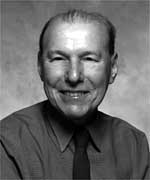
973 Satterlee Road
Bloomfield Hills, MI 48304
248-203-6417 or 248-646-0031
E-mail: LE@ScienceServingSociety.com
- Traffic Safety--What Do We Know, How Do We Know It, and What Can We Do? (P,G,S)
- Gender and Age Differences in Traffic Safety (P,G,S)
- Traffic Safety -- Past, Present, and Future -- in Different Countries (P,G,S)
Leonard Evans is president of Science Serving Society and, prior to that, worked for General Motors. He received his D. Phil. in physics from Oxford University. His research interests are reflected in his book, Traffic Safety and the Driver(reprinted 1996), and some 138 journal publications. He gave the keynote address in Dublin at the 1998 international conference The Older Driver, Health and Mobility. A member of the National Academy of Engineering, Dr. Evans is president of the International Traffic Medicine Association and a past president of Association for the Advancement of Automotive Medicine and has received awards from both organizations for outstanding contributions and achievements in the field. In 1991, he received a special award of appreciation from the National Highway Traffic Safety Administration for outstanding leadership and extraordinary contributions in the field of motor vehicle safety.
Kathleen M. Giacomini
School of Pharmacy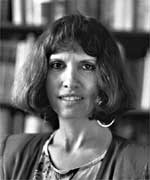
University of California
UCSF Box 0446
San Francisco, CA 94143-0446
415-476-1936
Fax: 415-502-4322
E-mail: kmg@itsa.ucsf.edu
- Tailoring Drugs to Fit Your Genes (P)
- Pharmacogenetics of Membrane Transporters (G)
- Pharmacogenetics (G)
Kathleen Giacomini is chair of the department of biopharmaceutical sciences and professor of biopharmaceutical sciences, pharmaceutical chemistry and cellular and molecular pharmacology at the University of California at San Francisco. She received her Ph.D. in pharmaceutical sciences from the State University of New York at Buffalo. People differ in their response to drugs for many reasons. These differences may be due to genetic differences. Pharmacogenetics is the study of the genetic basis for the differences in drug response among people. The Giacomini laboratory focuses on genetic differences in membrane transporters which play a role in drug response. Particular emphasis is placed on understanding the mechanisms involved in the transport of organic cations and nucleosides and ascertaining the biological relevance of these transport processes to drug disposition. Dr. Giacomini has served on the editorial boards of Clinical Pharmacology and Therapeutics, Pharmaceutical Research and the Journal of Pharmacology and Experimental Therapeutics. She was the 1999 International Pharmaceutical Federation Scientist of the Year.
Jane Gilman
Department of Mathematics and Computer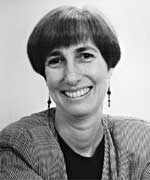 Science
Science
Smith Hall
Rutgers University
Newark, NJ 07102
973-353-5156 ext. 27
Fax: 973-353-5270
E-mail: gilman@andromeda.rutgers.edu
- Geometry and the Imagination (P)
- Non-Euclidean Geometry and Computers (G)
- Algorithms, Discrete Groups and Low-dimensional Topology (S)
Jane Gilman is a professor on the faculty of arts and sciences at Rutgers University, Newark and a past chair of the department of mathematics and computer science. She received her Ph.D. from Columbia University. Her fields of interests include Riemann surfaces, Kleinian groups, Teichmüller theory, hyperbolic geometry and theory of algorithms and symbolic computation on Kleinian groups. Dr. Gilman has been a visiting professor at Princeton University, the Institute for Advanced Study and the Mathematical Science Research Institute in Berkeley, California. She has published and lectured widely and has held a number of positions in the American Mathematical Society.
Sharon C. Glotzer
Associate Professor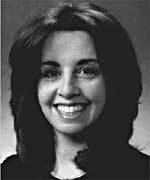
Departments of Chemical Engineering
Materials Science and Engineering
Macromolecular Science and Engineering
University of Michigan
Room 3014, H.H. Dow Building
2300 Hayward
Ann Arbor, MI 48109-2136
734-615-6296
Fax: 734-763-0459
E-mail: sglotzer@umich.edu
Web site: http://www.engin.umich.edu/dept/cheme/people/glotzer.html
- The Complex Nature of Molecular Motion in Liquids and Gasses: Finding Order in Disorder (G,S)
- Computer Simulations of Polymer Materials (G,S)
- Computational Materials Science: The Next Frontier (G,S)
Sharon C. Glotzer is associate professor of Chemical Engineering, Materials Science and Engineering, and Macromolecular Science and Engineering at the University of Michigan, Ann Arbor. She is co-founder and former director of the Center for Theoretical and Computational Materials Science at the National Institute of Standards Technology, where she worked for eight years after receiving her Ph.D. in theoretical condensed matter physics from Boston University. Prof. Glotzer works in the area of soft materials and nanoscale systems, for which she develops and applies computational investigative tools. She has published and lectured widely, edited several conference proceedings and organized or co-organized a dozen workshops and scientific meetings. Dr. Glotzer serves on several scientific advisory and editorial boards. Her awards include an NRC Postdoctoral Fellowship, a Presidential Early Career Award for Scientists and Engineers and the 2000 Maria Goeppert-Mayer Award of the American Physical Society.
Wendell T. Hill, III
Institute for Physical Science and Technology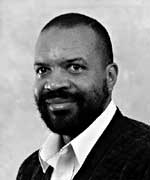
Rm.2117, Inst Phys Sci Tch Bldg
University of Maryland
College Park, MD 20742-2431
301-405-4813
Fax: 301-314-9404
E-mail: wth@ipst.umd.edu
- Molecules in Intense Laser Fields: Learning Physics from Chemistry (G,S)
- Atoms, Molecules and Light: Physics Serving Society (P)
Wendell T. Hill, III is a professor in the Institute for Physical Science and Technology and director of the laboratory for atomic, molecular and optical sciences and engineering at the University of Maryland. He received his Ph.D. in physics from Stanford University. Dr. Hill studies the interaction of electromagnetic radiation with atoms and molecules. Using focused femtosecond bursts of laser light, he creates environments where the average electric field of the laser is comparable in strength to that of the natural electric field in the hydrogen atom. These intense laser fields provide ways to modify the internal quantum states of a molecule and to alter its decay dynamics (ionization and dissociation). Dr. Hill guides ultra-cold beams of neutral atoms with carefully crafted hollow laser beams, beams with zero intensity along their axes. He is investigating ways to use hollow laser beams to create atom interferometers and gyroscopes. Dr. Hill is a fellow of the American Physical Society, has served on the executive committee of the American Physical Society's Division of Laser Science and its Committee on Minorities and has chaired the Committee on Atomic Molecular and Optical Science for the National Academy of Sciences.
William M. Jackson
Department of Chemistry
1 Shields Ave.
University of California
Davis, CA 95616
Phone: 530-752-0504
Fax: 530-754-7603
Web Page: http://www-chem.ucdavis.edu/groups/jackson/
- Comets, Messengers from the Past: Decoding the Message (P)
- Viewing Atmospheric and Astrochemical Photochemical Reactions with Velocity Ion Imaging (G)
- Photochemical Reaction Dynamics with Velocity Ion Imaging and VUV Lasers (S)
William Jackson is a professor of chemistry at the University of California at Davis. He also has taught at Howard University and worked at the Goddard Space Flight Center.His research interests include laser chemistry, laser photochemistry, free radical gas phase reactions and cometary astrochemistry. He and his colleagues are studying photodissociation dynamics by using one laser to produce the free radical under study, a second laser to photodissociate the free radical and a third laser to probe the internal energy distribution of the free radical. A member of Sigma Xi, Jackson's professional affiliations include the American Chemical Society, American Physical Society, the American Association for the Advancement of Science and the Optical Society of America, among others. He has been a Guggenheim Fellow and has received a number of teaching and research awards, including a Humboldt Research Award and a Lifetime Mentor Award from the AAAS.
Josef Alfons Käs
Center for Nonlinear Dynamics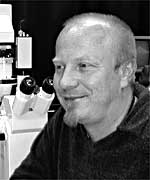
The University of Texas
Speedway and 26th Street
Austin, Texas 78712
512-475-7646
Fax: 512-471-1558
E-mail: kas@chaos.ph.utexas.edu
- Novel Methods in Cancer Diagnostics (P,G)
- Laser-based Micromanipulation of Biological Materials (G)
- The Physics of the Actin Cytoskeleton (S)
Josef Käs is an assistant professor of physics at the Center for Nonlinear Dynamics and the Institute for Cellular and Molecular Biology at the University of Texas at Austin. He received his Ph.D. from the Technische Universität München. His research involves the next big challenge for physics: studies of soft condensed matter physics on the scale of nanometers to tens of microns, i.e., on the scale of proteins and cells, in complex biological matter-often far from equilibrium and frequently behaving in a highly nonlinear manner. "There has been tremendous progress in molecular biology," Käs says. "Nevertheless, many of the questions addressed by molecular biology can only be understood by developing a novel combination of nanosciences and soft condensed matter physics." He says one of the most appealing aspects of this synergetic research in physics, chemistry and biology is that it simultaneously advances fundamental science and provides novel applications in biomedicine and materials sciences.
Jacqueline Krim
Department of Physics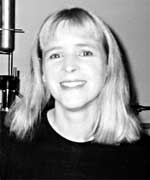
200 Research II, Box 8202
North Carolina State University
Raleigh, NC 27695
919-513-2684
Fax: 919-515-1333
E-mail: jkrim@unity.ncsu.edu
- Surface Science and The Atomic-Scale Origins of Friction: What Once was Old is New Again (G)
- Vapor-Phase Lubrication of MEMS Devices (S)
- Nanoscale Machines: These Squeaky Wheels Will Get No Grease (P)
Jacqueline Krim is a professor of physics at North Carolina State University. She received her Ph.D. in experimental condensed matter physics from the University of Washington, Seattle. Her research interests include solid-film growth processes and topologies at submicron length scales, nanotribology (the study of friction, wear, and lubrication at nanometer length and time scales) and liquid-film wetting phenomena. She is a Fellow of both the American Physical Society and the American Vacuum Society. Dr. Krim serves on the editorial boards for Tribology Transactions and Tribology Letters and on the advisory editorial board for Surface Science. She has published and lectured widely. Among her articles is "Friction at the Atomic Scale," which was the cover story for the October 1996 issue of Scientific American.
Octave Levenspiel
Chemical Engineering Department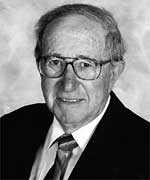
Oregon State University
Gleeson 103
Corvallis, OR 97331-2702
541-753-9248
Fax: 541-737-4600
E-mail: octave@che.orst.edu
- Making Friends with Chemical Reactors (S)
- Anomalies in Science (G)
- A Chemical Engineer Visits Dinosaurland (G)
Octave Levenspiel is emeritus professor of chemical engineering at Oregon State University, with primary interests in the design of chemical reactors. He received his Ph.D. at Oregon State. His pioneer book, Chemical Reaction Engineering, was the first in the field and has gone through numerous foreign editions, having been translated into 11 languages. His other books are The Chemical Reactor Omnibook, Fluidization Engineering (with a co-author),Engineering Flow and Heat Exchange and Understanding Engineering Thermo. A member of the National Academy of Engineering, Dr. Levenspiel has received major awards from scientific societies, but what pleases him most is being called the "Dr. Seuss" of chemical engineering.
Helen E. Longino
Philosophy Department
831 Heller Hall
University of Minnesota
Phone: 612-625-5047
Fax: 612-626-8380
E-mail: hlongino@tc.umn.edu
- Can Values Be Good for Science? (G)
- Individualism and Folk Psychology in the Scientific Study of Aggression (P)
- Science and Values: A Feminist Perspective (G)
Helen E. Longino, who received her Ph.D. in philosophy from the Johns Hopkins University, is a Professor of Philosophy and Women's Studies and member of the Minnesota Center for Philosophy of Science at the University of Minnesota. Her work in the philosophy of science has focused on two areas: the character of scientific knowledge practices and a variety of philosophical issues raised by the scientific study of behavior. She is known particularly for bringing feminist concerns about gender into conversation with mainstream work in both of these domains of inquiry. Her research has been recognized by grants from the National Science Foundation, as well as from private foundations, and has been widely published in a variety of journals. Her first book, Science as Social Knowledge, was published by Princeton University Press in 1990. Her new book, The Fate of Knowledge, will be available, also from Princeton University Press, in late 2001.
Linda Manzanilla
Institute of Anthropological Research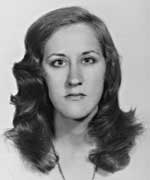
National Autonomous University of Mexico
Mexico City, Mexico
(52)-56-22-9535
Fax: (52)-56-22-9651
E-mail: lmanza@servidor.unam.mx
- Interdisciplinary Methodology for Activity Area Research n Domestic Contexts(S)
- Teotihuacan, Central Mexico: Multiethnic Cities and Urban Development (P)
- Corporate Groups and Rulership at Teotihuacan (G)
Linda Manzanilla is a researcher with the Institute of Anthropological Research of the National Autonomous University of Mexico and professor of archaeology at the National School of Anthropology and History. She received her Ph.D. at the University of Paris. Dr. Manzanilla is the author and editor of 12 books and 80 articles and chapters on subjects related to the emergence and change of early urban societies in Mesoamerica, Mesopotamia, Egypt, and the Andean Region. One of her areas of focus is the domestic life of the inhabitants of the first urban developments of archaic states. She has excavated in Mexico, Bolivia, Egypt and Eastern Anatolia. One new technical development related to her projects is the application of chemical techniques in the reconstruction of ancient activities, together with pollen, phytoliths, botanical macrofossils, faunal remains, osteology, ancient DNA and archaeological materials. Dr. Manzanilla has received the Mexican National Academy of Sciences Award, the Alfonso Caso Award and the Presidential Award of the Society for American Archaeology.
Debra L. Martin
School of Natural Science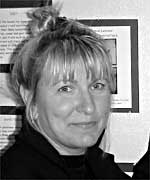
Hampshire College
Amherst, MA 01002
413-559-5576
Fax: 413-559-5448
E-mail: dmartin@hampshire.edu
- Violence Against Women in Ancient America (G)
- Brain Surgery, Pregnancy Tests and False Teeth: Ancient Inventions in Health Care (P)
- The Women Who Came Before Us: Diet, Health and Healing in the Ancient World (P)
- Skeletal Plasticity: Reading Bones For Clues To Past Behavior (S)
Debra Martin is professor of biological anthropology, director of the U.S. Southwest and Mexico Program and dean of the School of Natural Science at Hampshire College. She received her Ph.D. from the University of Massachusetts at Amherst in skeletal biology and physical anthropology. Her research interests include health in the ancient world, with a focus on indigenous women and arid environments. She is trained in the areas of skeletal biology, bioarchaeology, paleopathology, paleonutrition and women's biology, with regional specialization covering desert regions of the American Southwest and Northern Mexico, as well as Egypt and Arabia. Her research centers on identification of groups at risk, patterns of mortality of women and children, violence directed against subgroups, political-economic perspectives in the analysis of disease, Native and Southwest Studies and ethnic tourism and its effects on indigenous people. Dr. Martin has published and lectured widely. Among the books she has co-authored or co-edited are Harmony and Discord: Bioarchaeology of the La Plata Valley (in press) and Troubled Times: Evidence for Violence and Warfare in the Past.
Lillian McDermott
Department of Physics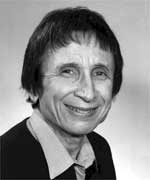
Box 351560
University of Washington
Seattle, WA 98195-1560
206-543-8692
Fax: 206-543-9702
E-mail: lcmcd@phys.washington.edu
Web: http://www.phys.washington.edu/groups/peg
- Bridging the Gap Between Teaching and Learning (G, S)
- Preparing Teachers to Teach Physics and Physical Science by Inquiry (G, S)
Lillian C. McDermott is Professor of Physics and director of the Physics Education Group at the University of Washington. She received her Ph.D. in physics from Columbia University. She is a Fellow of the American Physical Society and the American Association for the Advancement of Science and is the recipient of both the Millikan Lecture Award (1990) and Oersted Medal (2001) of the American Association of Physics Teachers. For more than two decades, Prof. McDermott has worked to establish research on the learning and teaching of physics as a field for scholarly inquiry by physicists and has written extensively on the subject. Under her leadership, the Physics Education Group conducts a coordinated program of research, curriculum development, and instruction. The materials developed by Professor McDermott and her group are used in undergraduate courses (Tutorials in Introductory Physics) and in the preparation of K-12 teachers (Physics by Inquiry).
Richard Meindl
Department of Anthropology
P.O. Box 5190
Kent State University
Kent, OH 44242-0001
Phone: 330-672-GENE
Fax: 330-672-2999
E-mail: rmeindl@kent.edu
- Human Demographic Evolution: A View from Archaeology (G)
- Overcoming Biases in Paleodemography (S)
Richard Meindl is Professor and Chair of the Department of Anthropology at Kent State University where he teaches courses in demography, statistics, and biological anthropology. He earned his doctorate in anthropology in 1979 from the University of Massachusetts, at Amherst. He has conducted research in population genetics, human and primate evolution, and human ergonomics. His role in the Connecticut Valley Project was the historical demography of western New England, especially the mortality transition of the 19th century. Most recently, Meindl has studied the paleodemography of an archaeological area called the Shell Mound Region of western Kentucky. These were pre-agricultural peoples whose skeletal remains and artifacts have been recovered from sites more than four thousand years old. They provide a special opportunity to examine the precursors of complex societies, sedentary living, and human demographic evolution.
Richard Montgomery
Department of Mathematics
University of California
Santa Cruz, CA 95064
Phone: 831-459-4018
Fax: 831-459-3260
E-mail: rmont@math.ucsc.edu
Web Page: http://count.ucsc.edu/~rmont
- Falling Cats and Classical Quarks (P, G, S)
- Figure Eights with Three Bodies (P, G, S)
- Heisenberg and the Isoperimetric Inequality (P, G, S)
Richard Montgomery is a professor of mathematics at the University of California at Santa Cruz. He received his B.A. at Sonoma State University and his Ph.D. at the University of California at Berkeley. His work can be characterized as applied differential geometry. Much of it involves applications of gauge theory (fiber bundles with connections) to problems in mechanics and control theory. One such problem is that of a falling cat dropped from upside down. This geometric point of view on the cat's problem gives us a deep understanding and allows us to solve it explicitly for certain model cats. Most recently, Montgomery has returned to the N-body problem, which has a long history. He has been approaching it using modern methods taken from equivariant differential geometry and calculus of variations. Recently Montgomery and Alain Chenciner rediscoverd and proved the existence of a figure eight orbit type orbit for three bodies. The three masses chase each other around a figure eight shaped planar curve. This received press in Science, Science News and several other popular science journals.
Pedro A. Noguera
Dimon Professor of Communities and Schools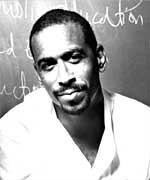
Graduate School of Education
Longfellow Hall
Harvard University
Cambridge, MA 02138-3752
617-496-4406
Fax: 617-496-3095
E-Mail: Pedro_Noguera@Harvard.edu
- Bridging the Racial Divide in Academic Achievement (P)
- The Role of Research in Improving Urban Public Schools (P)
- The Role of Schools in Responding to the Challenge of Diversity within American Society (P)
- Available to speak only in Boston, MA area.
Pedro Noguera is a professor of education at Harvard University, where he serves as the Dimon Chair in Community and School Leadership. Previously he was a professor in social and cultural studies at the Graduate School of Education and the director of the Institute for the Study of Social Change at the University of California, Berkeley. His research focuses on the ways in which schools respond to social and economic forces within the urban environment. Dr. Noguera has published and lectured widely on such topics as youth violence, race relations within schools, the potential impact of school choice and vouchers on urban public schools and secondary issues resulting from desegregation in public schools. His articles have appeared in the Harvard Educational Review, Urban Review, Hastings Constitutional Law Journal, International Journal of Race and Ethnic Relations, and the Journal of Social and Economic Studies. Dr. Noguera served four years on the Berkeley School Board and has also served on the Centers for Disease Control Taskforce on Youth Violence.
Thomas J. Overbye
Dept. of Electrical and Computer Engineering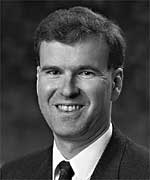
University of Illinois-Urbana-Champaign
1406 W. Green St.
Urbana, IL 61801
217-333-4463
Fax: 217-333-1162
E-mail: overbye@ece.uiuc.edu
- Reengineering the Electric Grid (P, G)
- Visualization of Electric Power Systems (G, S)
- Price Spikes in Electricity Markets: Is Deregulation Really Going to Result in Lower Electricity Prices? (G, S)
Thomas Overbye is associate professor of electrical and computer engineering at the University of Illinois at Urbana-Champaign. He received his Ph.D. from the University of Wisconsin at Madison. Dr. Overbye has published and lectured widely. His article "Reengineering the Electric Grid" appeared in the May-June 2000 issue of American Scientist. From 1983 to 1991, he was employed with Madison Gas and Electric Company, where he helped develop their real-time power system analysis software. In 1993, he was the recipient of the IEEE Power Engineering Society Walter Fee Outstanding Young Engineer Award and this year received the IEEE's Third Millennium Medal, as well as the BP Amoco Award for Innovation in Undergraduate Education.
Willie Pearson, Jr.
Professor and Chair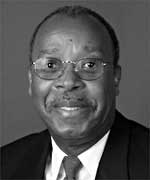
School of History, Technology and Society
Georgia Institute of Technology
Atlanta, GA 30332
404-385-2265
Fax: 404-894-0535
E-mail: willie_pearson@defiant.iac.gatech.edu
- Race, Gender and American Chemistry (G)
- Who Will Do Science? (P/G)
- Community-based Research Approach to Juvenile Violence (P)
Willie Pearson, Jr., is Chair and Professor, School of History, Technology, and Society at Georgia Institute of Technology. He received his Ph.D. in sociology from Southern Illinois University in Carbondale. His research focuses on human resources in science and science policy. He has authored and edited many publications, including Who Will Do Science? (co-edited with Alan Fechter). Currently, Dr. Pearson chairs the Committee on Science, Engineering and Public Policy for the AAAS;co-chairs, the NIH Minority Training Program Committee for the National Academy of Sciences, and is vice chair of the Committee on Equal Opportunity in Science, National Science Foundation.
Richard C. J. Somerville
American Meteorological Society/Sigma Xi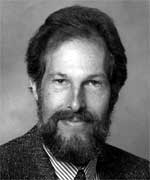 Lecturer
Lecturer
Professor of Meteorology
Scripps Institution of Oceanography
University of California, San Diego
9500 Gilman Drive, Dept. 0224
La Jolla, CA 92093-0224, USA
Telephone: 858-534-4644
Fax: 858-534-8561
http://myprofile.cos.com/somerv96
http://meteora.ucsd.edu/~iacob/SCM_Research.html
http://www.pbs.org/wgbh/warming/debate/somerville.html
- Climate Change: What Is At Stake And What Can Be Done About It? (P)
- Can Climate Models Be Trusted? (G)
- Cloud-Radiation Processes In The Climate System (G)
Since 1979, Richard Somerville has been Professor of Meteorology at Scripps Institution of Oceanography, University of California, San Diego. His current research emphasis is the role of clouds in the climate system. Somerville earned a B. S. from Penn State in 1961 and a Ph. D. from New York University in 1966, both in meteorology.He is the author of the critically acclaimed book, The Forgiving Air: Understanding Environmental Change, which was awarded the Louis J. Battan Author's Award for 2000 from the American Meteorological Society. He has been elected a Fellow of both the American Association for the Advancement of Science (AAAS) and the American Meteorological Society (AMS). Richard Somerville was also awarded the Walter Orr Roberts Lectureship in Interdisciplinary Sciences for 1999 by the AMS, "in recognition of significant contributions to the understanding of atmospheric processes."
H. Eugene Stanley
Department of Physics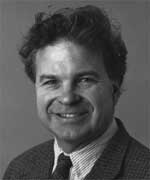
Boston University
590 Commonwealth Avenue
Boston, Massachusetts 02215
Phone: 617-353-2617
Fax: 617-353-3783
E-mail: HES@BU.EDU
- The Mysterious Behavior of Liquid Water (P, G)
- Can Physicists Contribute to Economics? (G)
Eugene Stanley is University Professor and professor of physics and physiology at Boston University. He received his Ph.D. at Harvard University. Stanley has published over 800 papers, has written or edited 15 books and recently received the Highly-Cited Award from Science Citation Index (5,898 citations). He received the 2001 National Science Foundation Distinguished Teaching Scholar Director's Award for integrating forefront research with undergraduate teaching in an effort towards empowering majors and non-majors to learn fundamental concepts through interactive visualization experiences. Stanley is also keenly interested in reforming scientific instruction at the secondary level, hoping to transform instruction so that students can use the computer as a personalized tool of enquiry. He has received four honorary doctorates, a Guggenheim Fellowship, the American Physical Society's Centennial, Richtmyer, Turnbull, Saha and Bose lectureship prizes, and the Massachusetts Professor of the Year award of the Council for Advancement and Support of Education.
Mriganka Sur
Sherman Fairchild Professor of Neuroscience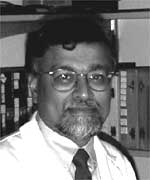
Department of Brain and Cognitive Sciences
Massachusetts Institute of Technology
45 Carleton St, E25-235
Cambridge, MA 02139
617-253-8784
Fax: 617-253-9829
E-mail: msur@ai.mit.edu
Web: http://web.mit.edu/bcs/sur.html
- How the Brain Wires Itself (P)
- Brain Plasticity (P,G)
- Rewiring Cortex: Patterned Activity and the Development of Cortical Networks (G, S)
Mriganka Sur is the Sherman Fairchild Professor of Neuroscience and the chair of the department of brain and cognitive sciences at the Massachusetts Institute of Technology. He received his Ph.D. in neuroscience at Vanderbilt University. His main research interest is the organization, development and plasticity of the cerebral cortex, which he studies with a combination of novel approaches. Dr. Sur is the author of numerous research articles on the wiring of the brain, including the mechanisms by which brain networks are created and altered during development and adulthood. His laboratory is supported by grants from the National Institutes of Health and other research foundations, and he serves on several editorial and scientific advisory boards. He has received numerous awards for research and teaching.
Emoke J. E. Szathmáry
Office of the President
202 Administration Building, Winnipeg, MB, Canada R3T 2N2
204-474-9345
E-mail:szathmar@umanitoba.ca
Web:http://www.umanitoba.ca/admin/president/
pres_curr_vitae.php
- What Does Genetics Gell Us about the Origins of Aboriginal North Americans? (P)
- A Case Study on the Etiology of Type 2 Diabetes in a Group of Indigenous Subarctic North Americans. (G)
- Genetic Evidence Regarding the Peopling of the Americas. (S)
Dr. Szathmáry was born in Hungary in 1944 and came to Canada in 1951. She earned a BA (Honours) and a PhD in Anthropology from the University of Toronto. After a year's appointment as Assistant Professor at Trent University, she joined the Department of Anthropology at McMaster University in 1975. She was promoted to the rank of Professor in 1983, and became Chairman of the Department of Anthropology in 1985. In 1989 Dr. Szathmáry left McMaster to be Dean of the Faculty of Social Science at the University of Western Ontario, and she returned to McMaster University in 1994 to serve as Provost and Vice-President (Academic). In 1996, she was named President of The University of Manitoba.
Since her arrival in Manitoba, Dr. Szathmáry has been actively involved in a number of public and private committees and boards at provincial and national levels. In 1998 she was a member of the Manitoba Electoral Boundaries Commission. As well, she was Co-Chair of the Manitoba Diabetes Strategy Steering Committee (1997-99), currently Co-Chairs the Advisory Committee on Diabetes to the Minister of Health and is a member of the board of the St. Boniface General Hospital. In 2000 she became Chair of the Council of Presidents of Universities in Manitoba and was elected a member of the Executive Committee and Board of the Association of Universities and Colleges of Canada.
Dr. Szathmáry's research has focused on the genetics of the aboriginal peoples of North America. Her work has addressed the causes of type-2 diabetes in aboriginal North Americans, the genetic relationships within and between peoples of North America and Asia, and microevolution of the peoples of the subarctic and arctic. Her field research was conducted among Ottawa, Ojibwa and Dogrib peoples in Ontario and the Northwest Territories. She is the author of over 80 scientific articles and reviews, and has co-edited three books. Dr. Szathmáry is the past editor of the Yearbook of Physical Anthropology (1987-91), and of the American Journal of Physical Anthropology (1995-2001), which is the official publication of the American Association of Physical Anthropologists.
Dr. Szathmáry is a Fellow of the Arctic Institute of North American (1989) and the American Association for the Advancement of Science (1995). She held the Paul T. Baker Lectureship at The Pennsylvania State University in 1992, and was named a life member of the Canadian Association for Physical Anthropology in 1997. In 1998 the American Anthropological Association named her Distinguished Lecturer, which is the highest recognition given by the anthropological discipline for a lifetime of exemplary scholarship.
Alan D. Taylor
Department of Mathematics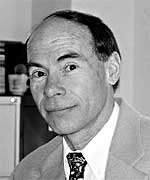
Union College
Schenectady, NY 12308
518-388-6197
Fax: 518-388-6005
E-mail: taylora@union.edu
- Fair Division: From Cake-Cutting to Dispute Resolution (G)
- The Mathematics of Voting (G)
- Three Impossibility Results in the Context of Modeling Fairness (G)
Alan Taylor is the Marie Louise Bailey Professor of Mathematics at Union College and the 1998 winner of its college-wide Stillman Prize for Teaching. He received his Ph.D. from Dartmouth College and, although trained as a logician, has spent much of the last decade dealing with mathematical questions arising from the field of political science. In addition to publishing a number of research articles, he is the author or co-author of four recent books:Mathematics and Politics, Fair Division: From Cake-Cutting to Dispute Resolution (with S. Brams), The Win-Win Solution: Guaranteeing Fair Shares to Everybody (with S. Brams) and, with W. Zwicker, Simple Games.
Carol Ward
Department of Anthropology
107 Swallow Hall
University of Missouri
Columbia, MO 65211
Phone: 573-882-5407
Fax: 573-884-5450
E-mail: WardCV@missouri.edu
http://rcp.missouri.edu/carolward/links.html
- Human Origins: Newest Evidence of Our Earliest Ancestors (P, G)
- How Human Intelligence Evolved (G.S)
- The Origin of Human Locomotion (P,G.S)
With a dual faculty appointment, Carol Ward serves as the primary link between anthropology and anatomy at the University of Missouri-Columbia. Her interests include the evolution of humans and our closest relatives, apes and monkeys, and her research focuses on fossils from East and South Africa, primarily Kenya. She takes a mechanical approach to the interpretation of the postcranial skeleton and uses these principles to reconstruct the behavior of extinct animals.
Her current research involves description and interpretation of early hominid fossils from Ethiopia. Another interest is the great radiation of apes that lived in the early Miocene (almost 18 million years ago) out of which came human ancestors. Ward is also interested in the functional anatomy of the spines and the hands of modern and fossil humans and of our earlier relatives. She teaches anthropology courses during winter semester only, and anatomy during summer.
Pamela R. Willoughby
Department of Anthropology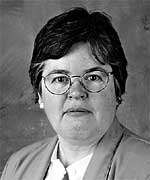
University of Alberta
Edmonton, Alberta, Canada T6G 2H4
780-492-0138
Fax: 780-492-5273
E-mail: pam.willoughby@ualberta.ca
Web: http://www.arts.ualberta.ca./~pwilloug
- Mitochondrial Eve and the Middle Stone Age: The African Origin of Modern Humans (P, G, S)
- The People Without Culture? The Archaeology of Early Modern Humans in Africa (P, G, S)
- The Great Rift Valley: East African Evidence for Our Remote Past (P, G)
Pamela Willoughby is an associate professor of anthropology at the University of Alberta. She received her Ph.D. at the University of California at Los Angeles. Since 1989, she has directed an archaeological project in Southwestern Tanzania dealing with the Middle and Later Stone Age and the origin of anatomically modern humans. Dr. Willoughby has published and lectured widely on these subjects. Her many professional affiliations include the Society for American Archaeology, the American Anthropological Association, and the Society of Africanist Archaeologists, for whom she has been (since 1994) the editor of Nyame Akuma, a bulletin on current research.
Milford H. Wolpoff
Paleoanthropology Laboratory
Department of Anthropology
University of Michigan
Ann Arbor, MI 48109-1382
Phone and Fax: 734 4753291
E-mail: wolpoff@umich.edu
- A Neandertal in Your Closet? - (P,G,S)
- Modern Human Origins (P,G,S)
- The Origin of Humanity (P,G,S)
Milford Wolpoff is a professor of anthropology at the University of Michigan whose interests include evolutionary process and theory and functional morphology. He has firsthand experience with virtually the entire human and pre-human fossil record, from evidence of hominid origins to the appearance of modern humans and their evolution. His research overseas has been supported by grants from the National Science Foundation, the Committee for Scholarly Exchange with the People's Republic of China and the National Academy of Sciences, among others. Wolpoff is one of the developers of the Multiregional Evolution hypothesis about the pattern of human evolution, and is deeply involved in the ongoing debate over the place of Neanderthals. His recent books include the definitive textbook Paleoanthropology and the award-winning Race and Human Evolution with Dr. Rachel Caspari. Wolpoff is often heard on PBS, quoted in articles on fossil and genetic discoveries in the New York Times and other newspapers and cited in journals and magazines.